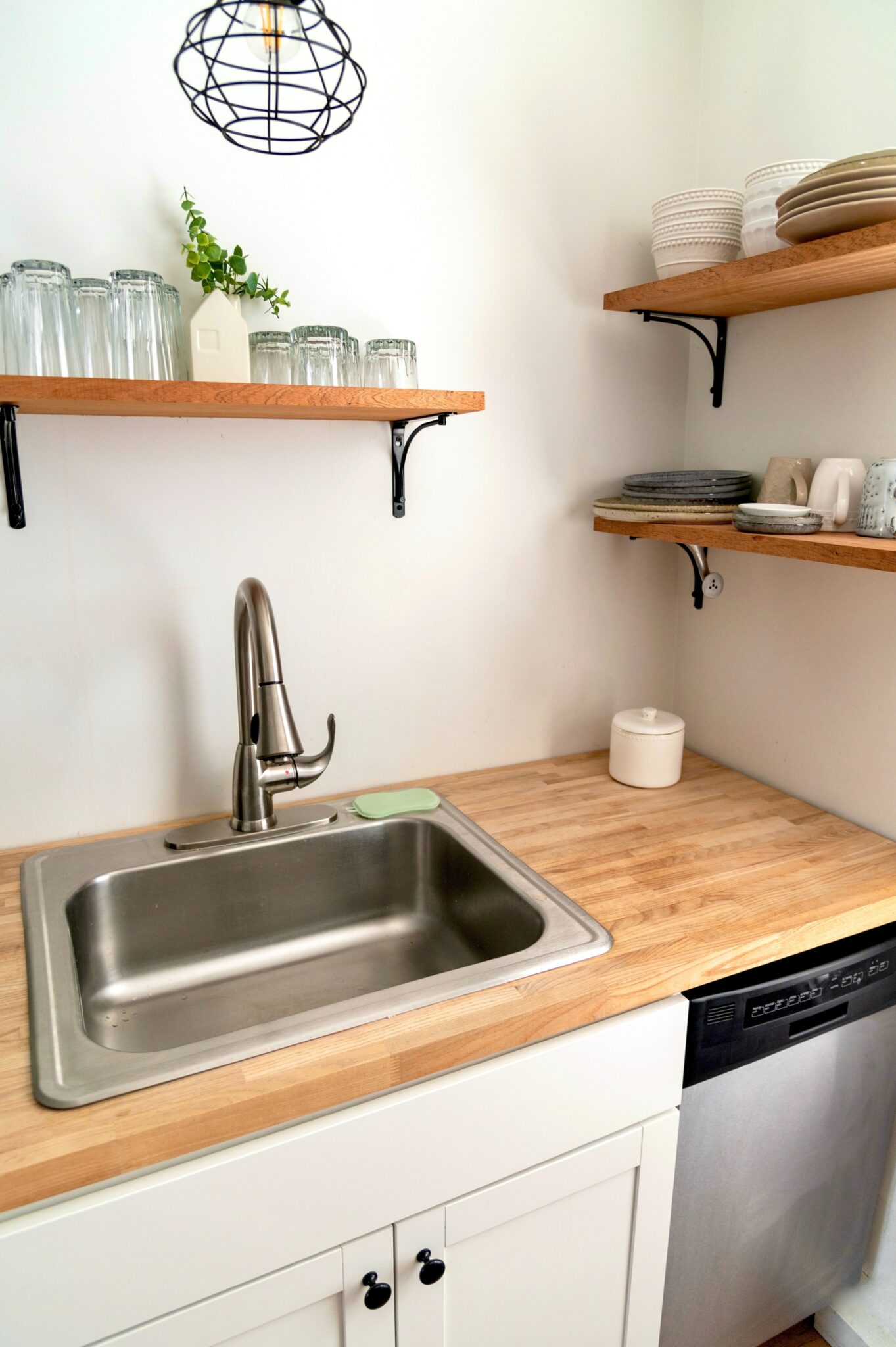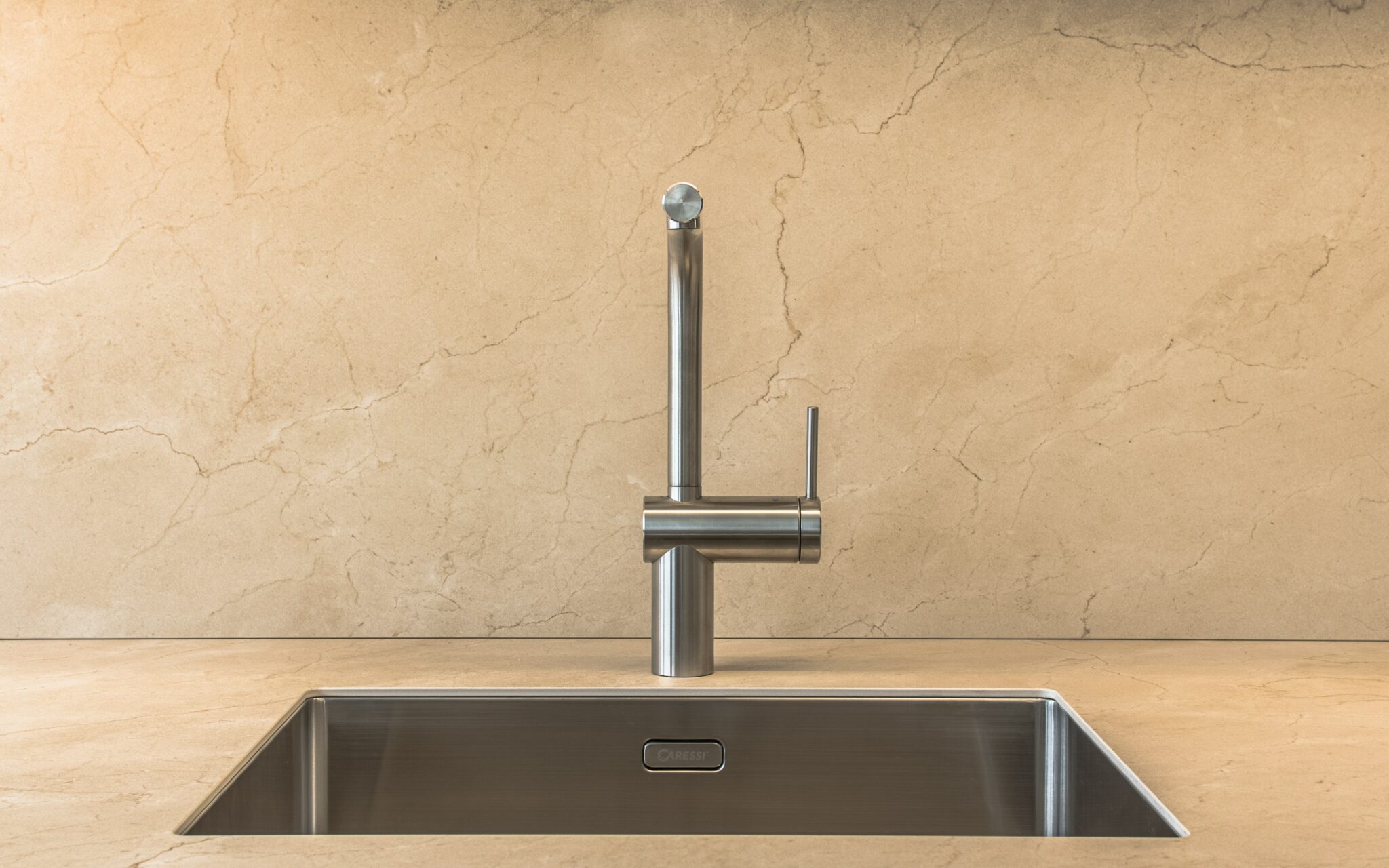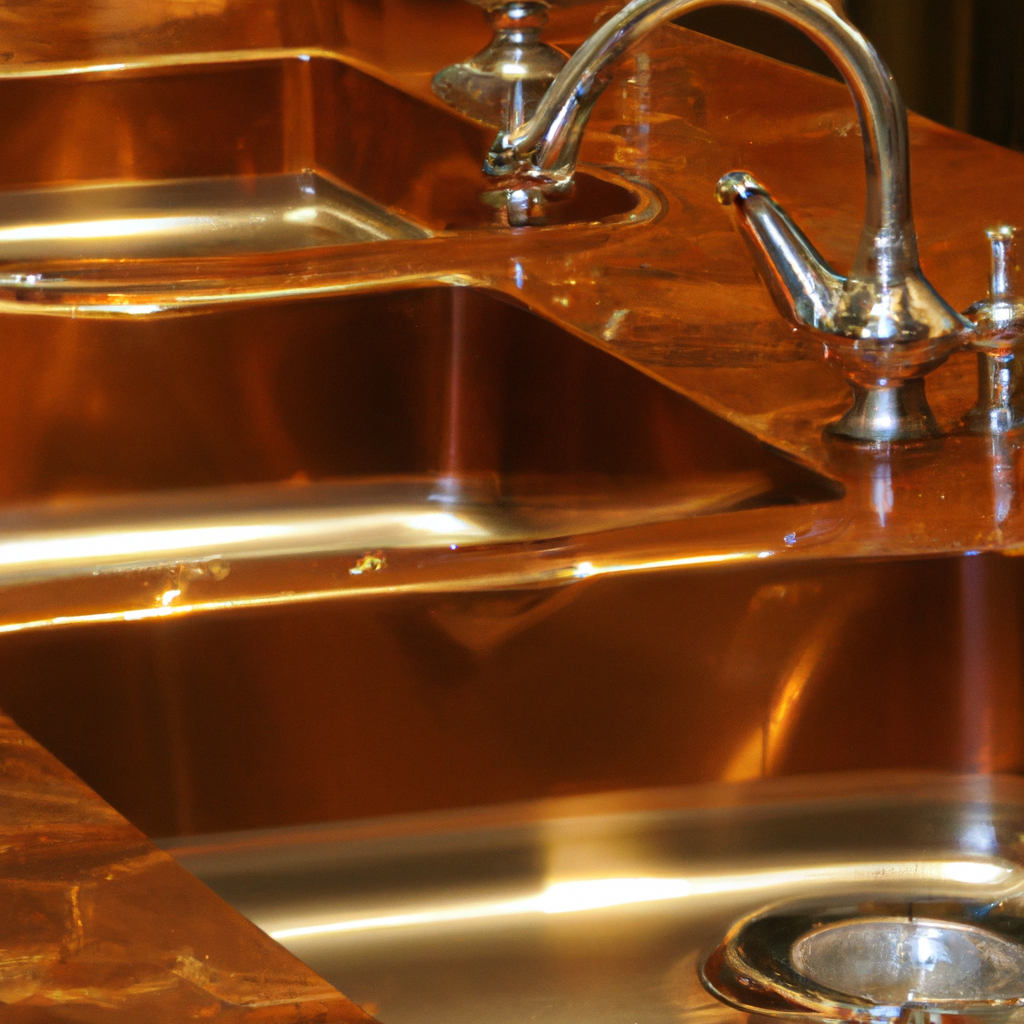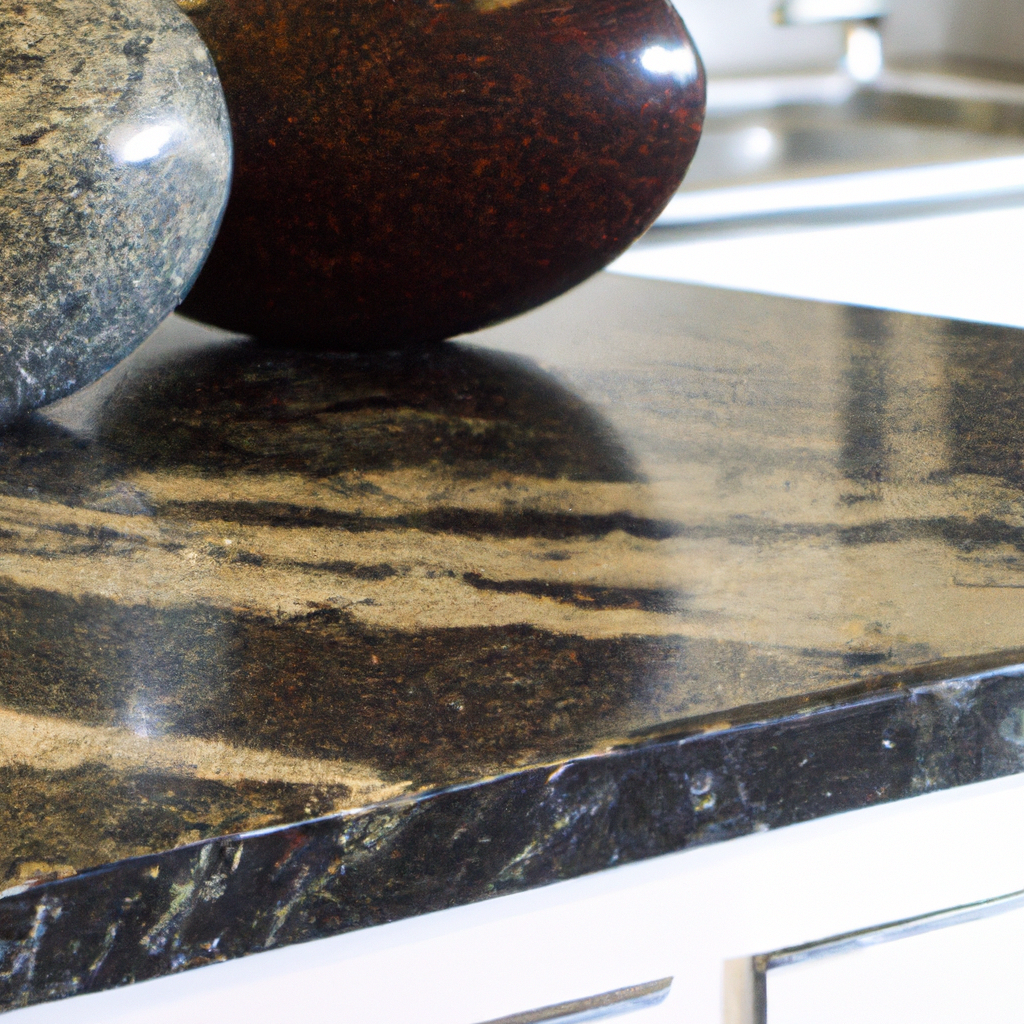Key Takeaway:
- Stainless steel and copper kitchen sinks both offer a luxurious look and feel, but stainless steel is generally more affordable and easier to maintain. Copper, while more expensive, offers a unique patina and is highly resistant to bacteria and corrosion.
- The choice between stainless steel and copper ultimately depends on personal preference and budget. While stainless steel may be a more practical choice for most homeowners, those looking for a standout piece in their kitchen may prefer the unique look of a copper sink.
- When choosing between stainless steel and copper sinks, it's important to consider factors such as durability, maintenance, and overall aesthetic. Both materials have their own advantages and disadvantages, and selecting the right one for your kitchen can make a big difference in both functionality and style.
Want to give your home a luxurious upgrade? Consider a kitchen sink. Stainless Steel and Copper are both great options. But which one is more luxurious? Keep reading to find out!
Introduction
Kitchen sinks are the unsung heroes of every modern home. They are used for preparing food, washing dishes, and other household tasks. But did you know that kitchen sinks are also a statement piece? They can add significant value to a home and elevate the overall aesthetic.
In this section, we will explore the luxury sink market and how it has evolved over the years. We will define what “luxury sinks” mean and why they have become essential in modern homes. Join us as we dive into the world of premium kitchen sinks, specifically stainless steel and copper, and determine which one reigns supreme in terms of luxury.
Definition of luxury sinks and their importance in modern homes
Luxury sinks bring a touch of elegance, performance, and ergonomic functionality to modern kitchens, baths, and outdoor spaces. They are made from materials such as copper, stainless steel, and architectural alloys, and come with lifetime warranties.
Copper sinks are a popular choice. Copper has natural antimicrobial properties, inhibiting growth and defending against bacteria and staph infections. It's eco-friendly, being recyclable and sustainable. Copper sinks come in various styles, such as drop-in, overmount, undermount and farmhouse sink. They also have a natural acid patina, which makes them resistant to harsh environments.
Stainless steel is a durable, high-performance option. Havens sinks offer a range of finishes, including polished or matte copper, rustic copper, and hand-hammered copper. They have excellent antimicrobial properties, self-healing patina, and resist corrosion and water spotting. Perfect for aquatics or harsh environments.
In conclusion, copper and stainless steel offer different advantages. Both have similarities and differences. But both deliver perfect sinks that homeowners can enjoy for years.
Durability
When considering which kitchen sink material to choose, durability should be a top factor to consider. In this section of our comparison between stainless steel and copper kitchen sinks, we’ll examine the durability of each material. We’ll explore the reliability and longevity of stainless steel sinks, including its ability to withstand scratches, dents, and stains. Afterwards, we’ll dive into the durability of copper sinks, including the potential benefits and drawbacks of owning a sink made of this beautiful, but softer material.
Stainless steel sink durability
Stainless steel sinks are a great choice for kitchens. They last long, need less care and have lots of features.
These sinks are made from 14-gauge metal. It's a special formulation and fabrication process. This makes them resistant to environmental elements, foods, and cleaning agents. Copper sinks need special cleaning agents to look good.
Stainless steel sinks come in lots of styles, such as drop-ins, overmounts, and undermounts. They are cheaper to install than copper sinks.
They also naturally stop bacteria growing. This stops dangerous microorganisms. And, there is a lifetime warranty. This shows they are a quality investment. Good brands will give you a high-quality stainless steel sink.

Copper sink durability
Copper sinks are renowned for their durability and add an elegant touch to any kitchen or bathroom. However, to keep it in pristine condition, maintenance is essential. Here are some factors to consider when comparing copper sink durability to stainless steel:
Maintenance:
Copper needs regular cleaning to retain its polished look. A soapy sponge or specialist cleaning product can help remove any dirt, grime, or water stains that accumulate over time. Ideal for indoor use only.
Stainless steel is relatively easy to maintain and can handle abrasive cleaners, metal pots, and acidic foods without fading, peeling, or cracking. Highly recommended for both indoor and outdoor applications due to its superb resilience to the elements.
Cost and Installation:
Copper sinks tend to be pricier than stainless steel and usually require a professional plumber for installation. There are drop-in, overmount and undermount sinks that can fit in with different design plans, such as dark cabinets, countertops, and stainless steel appliances.
For stainless steel, it is cheaper and can be quickly installed with minimal effort.

Durability and Longevity:
Copper is a natural material that resists corrosion and has a long lifespan. It is also naturally antibacterial, making it a great choice for health-conscious homeowners who want protection against bacteria and inhibited growth.
In comparison, stainless steel is a durable material that is capable of enduring extreme force and resists corrosion in marine conditions. It is made of 14-gauge metal and manufactured in the USA.
Market Value:
Copper sinks have a unique texture, pattern, and color that add to their overall market value. They also develop a patina, which is a gray-green color, due to oxidation with exposure to the atmosphere.
Stainless steel has a modernistic, contemporary look that is associated with industry standards, profitability, and reliable brands.
To sum up, copper sinks need special maintenance but are beautiful to have in the home. Stainless steel sinks, on the other hand, are affordable and require minimal maintenance – perfect for both indoor and outdoor use, with its great resilience to the elements.
Maintenance
When it comes to choosing the right kitchen sink, maintenance should be a key consideration. Stainless steel and copper are two popular materials, but each requires a different approach to upkeep. In this section, we will examine how to maintain a stainless steel sink and how to maintain a copper sink. By understanding the unique care requirements of each material, you can ensure that your sink remains in top condition and keeps its luxurious appearance for years to come.

How to maintain a stainless steel sink
Keeping your stainless steel sink shining and new may sound daunting, but with a few simple steps, it's easy! Here's how to keep up its condition:
- Clean it regularly with warm water and mild soap using a soft cloth or sponge.
- For a deep clean, use special cleaners made for stainless steel. Avoid harsh chemicals or anything that can scratch the surface.
- To remove hard water stains or mineral build-up, make a paste from baking soda and water. Gently scrub the affected area with a soft-bristled brush.
- Don't leave standing water in your sink, as it can discolor and stain it.
- To prevent scratches, use a gentle sponge or cloth instead of steel wool pads or harsh scrubbers.
- Restore the shine and luster by wiping down the sink with a soft cloth and a small amount of olive oil or baby oil.
If you prefer a more sophisticated look, copper sinks are a great option. They're made from 100% recycled material and are naturally antibacterial. However, they require expert craftsmanship and extra maintenance. Copper has unique stiffness and thermal conductivity, and develops a gray-green patina when exposed to elements. It's also highly corrosion-resistant and great for marine applications.
These tips will help you maintain your stainless steel sink, keeping it looking new for years to come!
How to maintain a copper sink
Caring for your copper sink means having the right cleaning agents and giving it special attention. Here are some tips to make sure your copper sink lasts:
- Clean with warm water and mild soap, avoid abrasives and scrubbers that can scratch it.
- Use a copper cleaner to remove tarnish and give it a shine. Follow the instructions.
- Dry with a soft cloth to avoid water spots and discoloration.
- Don't put acidic food or liquids in the sink as this can damage the finish.
- Copper is naturally anti-bacterial, making it great for the kitchen.
Copper sinks are more expensive because of their high-grade material. They are made from 14-gauge metal sheets from USA. The patina process gives it a unique and consistent color. You can keep it or stop it to maintain the same color.
Caring for copper sink may take some effort, but it adds to the cottagecore design and comes with a lifetime warranty of a high-end brand.
Design Options
When it comes to kitchen sinks, design options are a crucial factor in choosing the right one for your space. In this section, we’ll dive into the world of design options for both stainless steel and copper sinks. From unique shapes to intricate patterns, there are endless possibilities for customization with both types of sinks.
First, we’ll explore the design options available for stainless steel sinks, which can range from minimalistic to industrial styles.
Then, we'll take a closer look at the design options for copper sinks, which offer a warm and rustic touch to any kitchen decor.
Stainless steel sink design options
Stainless steel and copper are two great options for sinks. Stainless steel is known for its durability, resilience, and visual appeal. It's made of high-end metals and is available in different gauges. 14-gauge metal is the highest grade for heavy-duty use. It's easy to maintain and comes with lifetime warranties. Plus, it's often made of recycled materials!
Copper is rare to find in the USA and is mostly made through custom fabrication. It's naturally antibacterial, but can oxidize and lose shine. It needs specialized cleaning agents for a polished look. Copper is resilient to nature's elements, but it's reactive to other metals.
Stainless steel is more affordable to install. When choosing between these two metals, consider your preferences and needs. Stainless is more practical and easier to maintain. Copper, on the other hand, is a long-lasting sink material. Research and ask for a free quote to get the best value for your budget.
Copper sink design options
Considering copper sink design? A few things to consider:
- Drop-in or overmount sinks are easy to install, but may wear over time.
- Polished copper sinks make a luxurious statement, but are costly to install and require regular cleaning.
- Gauge of copper sink refers to metal thickness, thicker being more structurally sound.
- Domestically made copper sinks have lifetime warranty.
Copper sinks offer a warmer and unique look than stainless steel. Also, patina eliminates need for coatings. Before purchasing, check fine print for warranty, return policies and potential hazards. Lastly, create design checklist to ensure the sink complements your decor.
Appearance
The appearance of a kitchen sink can make or break a kitchen's overall aesthetic. Stainless steel and copper are two materials that many homeowners consider for their luxurious properties. In this section, we will discuss the appearance of stainless steel sinks and copper sinks respectively. By exploring their unique visual characteristics, we can understand how each material can enhance the luxury and charm of a kitchen in its own way.
Stainless steel sink appearance
Stainless steel sinks have an elegant, modern look. Yet their cold aesthetic might not always fit a kitchen style. Copper sinks, however, offer a warm and inviting feel, making a bold statement in any kitchen.
Both types need regular cleaning. Yet copper has natural antibacterial properties, making it a popular choice for many homeowners. Prices for installation vary depending on the sink type and manufacturer. Copper sinks tend to be more costly due to their unique properties and manufacturing process. It is best to use a 14-gauge copper sink for ideal quality. Make sure the copper used is from the USA to ensure the sink lasts.
Copper sinks have intricate and complex design elements that set them apart from stainless steel. Although stainless steel is mostly made in the US or Asia, Mexican-made copper sinks are trustworthy, with some brands promising lifetime quality.
Copper has natural protection against outdoor elements and offers excellent atmospheric exposure and corrosion resistance. The challenge is to follow manufacturer cleaning guidelines for long-term performance.
In summary, copper sinks can prevent bacteria and match any kitchen style. Stainless steel sinks give a modern look and are durable. Ultimately, homeowners must decide which they prefer.
Copper sink appearance
Copper sinks can bring beauty and luxury to any kitchen. The warm feeling it gives off is attractive compared to the colder stainless steel. When choosing between the two, consider these factors:
- Cost – Copper is more expensive due to the cost of 14 gauge copper, melted in the US.
- Maintenance – Copper may be harder to keep up, but it is antibacterial.
- Origin – Copper is usually made in the US, whereas steel is made by machinery or from Mexico.
- Visuals – Copper looks unique and forms naturally over time, giving it a lifetime of protection.
Think about these points when deciding if a copper sink is right for your kitchen.
Cost
When it comes to selecting a kitchen sink, there are several factors that homeowners prioritize based on their personal preference. One of these factors is cost. In this section, we will explore the cost of two types of kitchen sinks: stainless steel and copper. We will delve into the reasons why the price point differs for each type of sink and evaluate the benefits and drawbacks of investing in either a stainless steel or copper sink based on the cost.

Image credits: kitcheninfinity.com by Joel Woodhock
Stainless steel sink cost
It's essential to weigh the cost and benefits of stainless steel and copper kitchen sinks. Stainless steel is usually budget-friendly – drop-in sinks can range from $100 to $500. For a custom sink, 14 gauge stainless steel is higher quality and costs up to $2,000. It's also easy to clean.
Copper sinks, however, are pricier – from $400 to $1,200 or custom options up to $5,000. Copper has natural antibacterial properties, making it a good choice for those who want to protect against bacteria. Plus, it has a unique look that can fit many kitchen styles. But it's harder to maintain, needing regular cleaning to avoid tarnishing. Domestic and Mexican made products vary in quality.
When considering stainless steel and copper, consider preferences, including visuals and function, and installation costs. That way, buyers can choose the best option for them.
Copper sink cost
When it comes to copper sinks, cost is a factor. They range between $400-$2000+, depending on gauge, size and origin. But why choose copper over stainless steel? Copper is antibacterial – killing a range of bacteria, like E.coli and MRSA. It's also naturally protective against nature's elements. Plus, copper can be shaped into intricate surfaces – beautiful and practical. Popular choice is 14 gauge copper, for durability and resistance. Look for USA made copper sinks – better quality than Mexican. Copper sinks may need some extra care to keep their finish, but the unique look plus their protective properties make them an ideal kitchen addition.
Resale Value
When it comes to deciding between a stainless steel or copper kitchen sink, beyond the looks and functionality of each, it’s also essential to consider the effect on the home’s resale value. This section will explore how the choice of kitchen sink can potentially make or break the resale value of a home. Specifically, we'll unpack how a stainless steel or copper sink selection can fit seamlessly into a potential home buyer's perception of luxury and the resale value of the home.
How sink choice can affect resale value of a home
When it comes to upgrading your kitchen sink, the choice of material can affect the resale value of your home. Two common options are stainless steel and copper sinks.
Steel is more affordable, but copper has unique benefits. Copper is naturally anti-bacterial and has been used for centuries for its protection against bacteria.
Industry research suggests kitchen renovations can provide a 78% return on investment. Consider long-term durability and maintenance when making a choice. Copper sinks are difficult to clean and maintain, yet they are 14 gauge metal and durable. Copper sinks are typically domestically made.
Stainless steel sinks are easy to clean and maintain. They offer an affordable cost to install. But they may lack visual compliments that copper offers. Also, they are usually manufactured outside of the USA.
Choose wisely! Pick a sink material based on personal preference and budget. Consider potential resale value. Add value to your home with the right sink material.
Conclusion: Which is the Better Choice for a Luxury Kitchen Sink?
To sum up, both copper and stainless-steel sinks have their pros and cons. It all comes down to your tastes and budget.
Copper sinks offer natural antibacterial protection and age well. However, they need specialized cleaning products and can be pricey – especially if you prefer Mexican-made ones.
Stainless-steel sinks have a colder, industrial look. They can be shaped and stretched, are easier to maintain, and are usually made by reliable US brands. Your choice depends on lifetime, bacteria defense, and nature's elements.
Five Interesting Facts About Stainless Steel vs. Copper Kitchen Sinks:
 Stainless steel sinks are more durable and resistant to scratches, stains, and corrosion than copper sinks. (Source: HomeAdvisor)
Stainless steel sinks are more durable and resistant to scratches, stains, and corrosion than copper sinks. (Source: HomeAdvisor) Copper sinks are a better heat conductor, making them ideal for washing dishes and handling hot water. (Source: The Spruce)
Copper sinks are a better heat conductor, making them ideal for washing dishes and handling hot water. (Source: The Spruce) Stainless steel sinks have a more modern and sleek look and are easier to match with other appliances and finishes. (Source: HGTV)
Stainless steel sinks have a more modern and sleek look and are easier to match with other appliances and finishes. (Source: HGTV) Copper sinks develop a unique patina over time that adds character and warmth to a kitchen. (Source: Houzz)
Copper sinks develop a unique patina over time that adds character and warmth to a kitchen. (Source: Houzz) The choice between stainless steel and copper sinks ultimately comes down to personal preference, budget, and kitchen design. (Source: Bob Vila)
The choice between stainless steel and copper sinks ultimately comes down to personal preference, budget, and kitchen design. (Source: Bob Vila)
FAQs about Stainless Steel Vs. Copper Kitchen Sinks: Which Is More Luxurious?
What is the difference between stainless steel and copper kitchen sinks?
The difference between stainless steel and copper are the have two different types of metals that give sinks a unique look. While stainless steel has a cold look, copper gives a warm and luxurious feel. Copper sinks are also more difficult to maintain and require regular copper cleaning.
Which is more expensive, stainless steel or copper kitchen sinks?
The more expensive kitchen sinks are the stainless steel due to their manufacturing process and the cost to install a sink. Copper is also considered one of the oldest metals used by humans and is a more luxurious material for sinks.
Is it true that copper is naturally antibacterial?
Yes, it is true that copper is naturally antibacterial. According to scientific studies, copper has the ability to kill 99.9% of bacteria on its surface within a few hours. This makes copper sinks a great defense against bacteria and natures elements in the kitchen.
What is the differentiation between steel metals and copper?
The main differentiation between steel metals and copper is their physical appearance. While steel has a cold, industrial look, copper has a warm, luxurious feel. Stainless steel is durable and does not rust, whereas copper requires regular maintenance, including copper cleaning to prevent tarnishing.
Are stainless steel kitchen sinks easier to maintain than copper?
Yes, stainless steel kitchen sinks are easier to maintain and clean than copper sinks. Stainless steel is resistant to scratches and stains, and it doesn't require any special cleaning or maintenance. Copper, on the other hand, needs regular cleaning and can be difficult to maintain due to its tarnishing and patina.
How long do the products lifetime last?
The lifetime of a product varies depending on several factors, such as the type of product, its quality, how well it is maintained, and frequency of use, so it is difficult to provide a specific answer in a sentence.
The post Stainless Steel Vs. Copper Kitchen Sinks: Which Is More Luxurious? appeared first on Kitchen Infinity.
source https://kitcheninfinity.com/stainless-steel-vs-copper-kitchen-sinks-which-is-more-luxurious/?utm_source=rss&utm_medium=rss&utm_campaign=stainless-steel-vs-copper-kitchen-sinks-which-is-more-luxurious


No comments:
Post a Comment